Medical Cannabis
Cannabis-based treatments for various health conditions, guided by specialized medical support.
The information on this page is for informational purposes only and does not replace consultation with a qualified healthcare professional. All medical cannabis treatments must be prescribed and supervised by a licensed physician.
What is medical cannabis?
Medical cannabis refers to the use of cannabis plants and their derived compounds — such as cannabinoids — to treat specific diseases or conditions.
The two main cannabinoids with therapeutic applications are tetrahydrocannabinol (THC) and cannabidiol (CBD).
Unlike recreational use, medical cannabis is prescribed by qualified physicians, with controlled dosages and ongoing monitoring, aiming to maximize therapeutic benefits and minimize adverse effects.


Conditions treated
Medical cannabis has shown efficacy in treating a range of conditions, including:
- Chronic pain
- Refractory epilepsy
- Multiple sclerosis
- Nausea and vomiting from chemotherapy
- Anxiety disorders
- Insomnia
- Parkinson’s disease
- Tourette’s syndrome
- Fibromyalgia
- Inflammatory bowel diseases
Methods of administration
Medical cannabis can be administered in various ways, each with distinct onset times, durations, and levels of bioavailability:
Oils and tinctures
Taken sublingually or orally, they allow for precise dosing and offer medium-duration effects.
Capsules
Oral administration with controlled release, ideal for long-term treatment plans.
Sprays
Applied orally or nasally, providing fast absorption and ease of use.
Creams and ointments
Topical use for localized pain, inflammation, and dermatological conditions.
Scientific evidence
The effectiveness of medical cannabis is backed by serious and up-to-date research.
- A systematic review in the British Journal of Clinical Pharmacology (2023) highlighted CBD’s effectiveness in reducing seizures in refractory epilepsy.
- A meta-analysis published in JAMA (2021) showed improvements in chronic pain and spasticity with cannabinoid use.
- Currently, over 5,000 peer-reviewed studies on cannabis are available on PubMed and through the NIH.
At 37 Miles, we only work with therapies grounded in solid evidence and approved by medical and regulatory guidelines.

FAQ
When used under medical supervision and within recommended dosages, medical cannabis does not pose a significant risk of dependency.
Products used in therapeutic settings typically have high concentrations of CBD (non-psychoactive) and controlled levels of THC, contributing to a safe and well-tolerated profile — especially for long-term use.
Response time varies depending on the condition being treated, the type of product used, and each patient’s individual characteristics.
Some patients report improvements within days, while others may need a few weeks to notice significant benefits.
Here’s how the process works:
First, you need a medical consultation — only a doctor can assess whether cannabis makes sense for your case.
If indicated, the doctor will issue a prescription. From there, you can purchase the medication and receive it directly at your home.
You’ll need two main things:
- A medical prescription specifically for cannabis.
- If you don’t yet have a prescribing doctor, we can recommend some.
If you already have the prescription but don’t know the next step — our team will guide you through the entire process.
It’s simpler than it seems, and we’ll walk you through it, step by step.


Innovative healthcare solutions for unconventional treatments, focusing on medicinal cannabis, psychedelic therapies and advanced technologies.
Quick Links
Get in touch
- +1 786-480-2830
- commercial@37miles.us
- @thirtysevenmiles
- 37 Miles
© 2025 – 37 Miles. All rights reserved.


